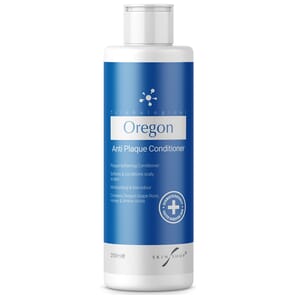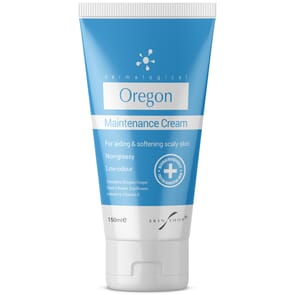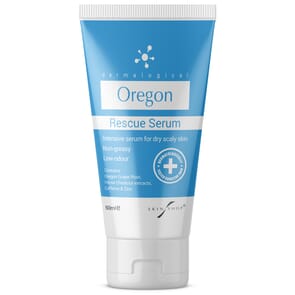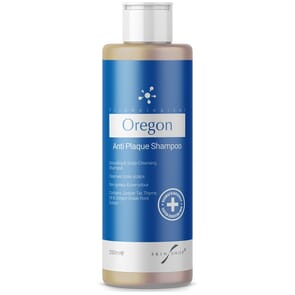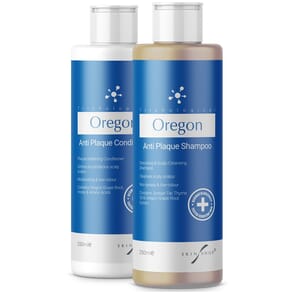What Can Help Psoriasis?

Unfortunately, psoriasis can’t actually be cured as it’s a chronic inflammatory skin condition triggered by the immune system. It’s a permanent skin condition but it is not infectious. Psoriasis can however be managed and controlled through medications, creams and lifestyle factors.
80% of those affected by psoriasis have mild-to-moderate symptoms of the condition that can be treated and controlled with ointments applied to the skin. The remaining 20% of those with severe psoriasis usually require other therapies and medications to control flare ups.
An immediate diagnosis is critical for early intervention and treatment before the condition has the chance to spread or intensify.
It’s important to see a dermatologist and not just your local doctor to get an accurate diagnosis. The wrong diagnosis can lead to more severe problems down the line as treatments for psoriasis are very specific.
Treatments for Psoriasis
Some common psoriasis treatments include:
Moisturisers
Psoriasis is a dry skin condition so the regular use of creams that help intensely moisturise skin can hugely help minimise the discomfort of the condition as well as reduce some secondary symptoms.
Skin that is less dry is also more receptive to topical treatments applied to treat the psoriasis.
In addition keeping the skin of affected areas well moisturised reduces the risk of cracking or splitting. Any form of cracking, flaking or ‘opening up’ of the skin puts the skin at much greater risk of infection from bacteria and pollutants which can inflame skin and make the problem worse.
Highly moisturising creams with as few chemical ingredients in as possible and formulated for very sensitive skin are the best.
Vitamin D skin products
There is good evidence to suggest that applying vitamin D treatments to the skin can counteract the accelerated rate of growth of psoriatic skin cells by speeding up the growth of ‘normal’ skin cells to help strengthen healthy skin.
Vitamin A treatments
Vitamin A treatment for psoriasis which may be used for up to 12 weeks and must only be applied to affected areas of skin and never on the face. This treatment can make skin extra sensitive so skin should be kept out of the sun during treatment.
Coal Tar products
Products containing coal tar have been shown to be beneficial to helping minimise psoriasis symptoms. They are mostly used in scalp and bath products.
Some products can be bought in the pharmacy while others are on prescription. The main drawback to coal tar treatments are their messiness to use and their unpleasant smell.
Topical steroids
Topical steroids are available only on prescription and are applied directly to the affected skin. They can help bring down inflammation and slow down skin cell production in psoriasis affected skin.
However they are not recommended for long-term or regularly repeated use and so can only be used during flare ups. The skin can also build up a tolerance to steroids and so they may become less effective over time if over-used.
Sunbeds, sunlamps and natural sunshine
Ultraviolet light reduces inflammation in the skin and therefore can be effective for psoriasis, but only UVB light is beneficial to psoriasis.The sun is a natural source of UVB light but exposure must be controlled and in small regular doses as the sun also contains other ineffective rays which can damage healthy skin.
Using a sun bed or UV lamp is not advisable as the light from a sunbed or lamp is broad spectrum (mostly UVA) and so is largely ineffective for psoriasis and can do harm to healthy skin.
UVB treatment
Narrowband UVB is used to treat persistent psoriasis that is severe and has not responded to topical treatments.
UVB therapy is administered at a hospital or dermatology clinic where the dosage of light therapy is tightly controlled and monitored. Several sessions over a protracted period are required for any positive effects.
PUVA treatment
PUVA is a combination of UVA light and a plant chemical called psoralen and is administered at a hospital or clinic. UVA is not beneficial in treating psoriasis on its own; instead it must be combined with psoralen to makes the skin more sensitive to the UVA light. Some people experience nausea when taking psoralen orally.
PUVA can be more successful on thicker plaques of psoriasis than UVB, as the UVA is absorbed deeper in the skin. Treatment is given over a 6-8 week period.
Immunosuppressant systematic treatments for Psoriasis
Immunosuppressive treatments can help slow down the turn-over of skin cells and reduce inflammation and are usually in tablet form or can be injected.
They are for more severe forms of psoriasis where most other forms of treatments have become ineffective. Some Immune suppressant treatments can also be used to treat psoriatic arthritis.
Liver damage is a risk of regular usage of Immunosuppressant medications and needs to be monitored carefully and side effects are common and can include nausea and sickness, diarrhoea, mouth ulcers, skin rashes and hair loss. With a lowered immunity, you are also more at risk of colds and flu while on Immunosuppressant medications.
Enzyme blockers
Enzyme blockers are a relatively new treatment for psoriasis and work by blocking enzymes that trigger the inflammatory response in skin cells.
Herbal Remedies for Psoriasis
The most helpful and widely studied herbal remedies for the treatment for psoriasis are those which contain plant steroids, which can act in a similar way to chemical steroids but with fewer negative side effects.
Oregon Grape Root (Mahonia aquifolium) is a plant extract which has been widely studied for its positive effect on psoriasis.
Oregon grape root is a native plant of North America and has been extensively examined as a treatment for psoriasis in several published studies. These studies have found that compounds isolated from extracts of OGR have shown some level of inhibitory activity against Lipoxygenase (an enzyme involved in psoriatic skin cell production).
More Psoriasis FAQ's:
Our Favourite Psoriasis Products:


